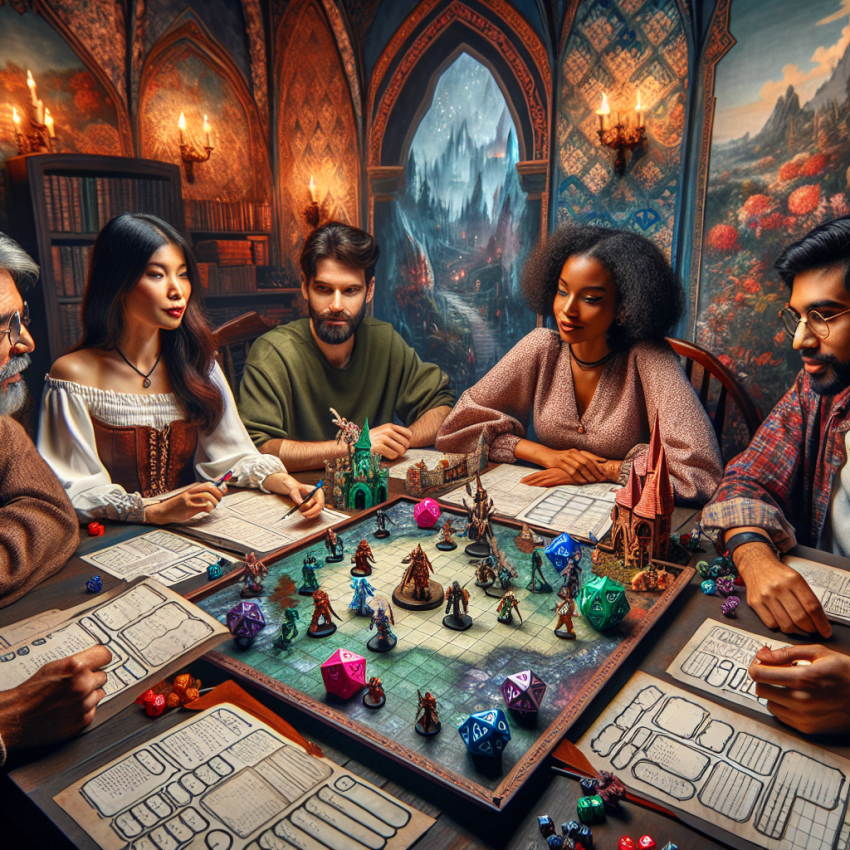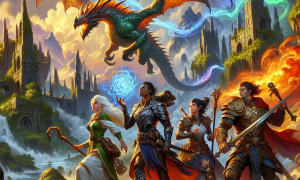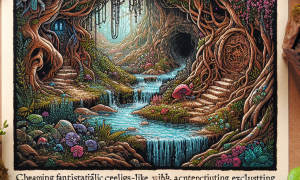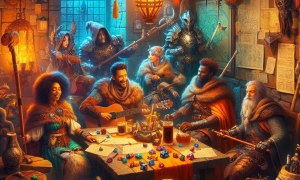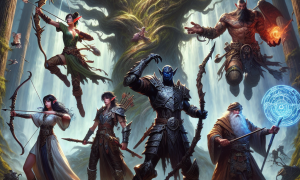When it comes to Dungeons and Dragons player management, it’s crucial for Dungeon Masters (DMs) to create an engaging and organized experience for all players involved. A successful session depends on several essential elements that help maintain balance between narrative immersion and player agency. In this article, we’ll explore ten critical factors that DMs should control during gameplay, ensuring that each player feels validated and involved while also keeping the campaign on track.
1. Clear Session Organization
Effective Dungeons and Dragons player management starts with meticulous session planning. DMs should provide a clear structure for each game, outlining the goals, themes, and expected outcomes. This organization not only sets a tone but also gives players a roadmap for their journey.
– **Start with a recap**: Briefly remind everyone of previous events.
– **Set the stage**: Describe the environment and current challenges.
– **Outline objectives**: Clearly state what players need to accomplish that session.
2. Encouraging Player Input
One of the hallmarks of Dungeons and Dragons is the collaborative storytelling aspect. Players should feel empowered to contribute ideas and make decisions that affect the campaign.
Invite Player Suggestions
Incorporate moments for players to suggest actions, challenge NPCs, or even influence story arcs. When DMs invite player input, it enhances the collective narrative and strengthens engagement.
Encourage Role-playing
Active role-play deepens character development and investment. DMs can facilitate by offering rewards or recognition for creative role-playing moments.
3. Balancing Spotlight Time
Another aspect of effective Dungeons and Dragons player management is ensuring that all players have a chance to shine. Some players can inadvertently dominate the session, while others might shy away from speaking up.
Rotate Focus
Dungeons and Dragons DMs can introduce a system that alternates the focus among players, giving everyone a moment in the spotlight.
– **Set session limits**: Give each player a defined time to express their actions or thoughts.
– **Use character prompts**: Encourage quieter players to describe what their characters are feeling or doing.
4. Session Pacing
Pacing helps maintain excitement and engagement levels throughout the game. A D&D session that’s either too slow or rushed can lead to player discontent.
Watch for Engagement Levels
Being aware of player engagement is important for DMs. If players appear distracted or bored, consider adjusting the pacing.
– **Speed up combat**: Streamline combat scenes to keep energy high.
– **Slow down narrative moments**: Give meaningful decisions time to breathe and develop.
5. Structuring Narratives
Story arcs should balance between linearity and player choice. Properly structured narratives help players understand their journey while allowing for flexibility.
Create Multiple Pathways
When designing quests, think about the different ways players can approach challenges.
– **Options for resolution**: Provide various choices that cater to different playstyles.
– **Emergent player-led stories**: Allow player actions to naturally influence the outcome of the narrative.
6. Addressing Conflicts
Conflict can occur among players, whether through role-play interactions or table dynamics. Managing these conflicts promptly is critical for a positive gaming environment.
Be Proactive
Dungeons and Dragons player management requires a proactive approach to conflicts. Address issues directly but delicately.
– **Create ground rules**: Establish basic etiquette before beginning.
– **Encourage communication**: Prompt players to discuss their feelings openly and respectfully.
7. Utilizing Game Mechanics Wisely
Employing game mechanics effectively ensures a smooth gaming experience. DMs should master the rules while remaining flexible for contextual changes.
Understand the Rules
A thorough understanding of the rules empowers DMs to create a balanced gameplay experience.
– **Utilize homebrew rules**: Sometimes, slight alterations can enhance enjoyment.
– **Streamline complex mechanics**: Keep the game flowing by simplifying where possible.
8. Ensuring Player Agency
An essential component of Dungeons and Dragons player management is preserving player agency. DMs should avoid railroading players while still guiding the narrative.
Implement Consequences
Every action should have consequences, reinforcing that player choices matter.
– **Positive and negative outcomes**: Allow players to face results of their decisions.
– **Adapt storylines**: Let player choices inform the campaign’s progression.
9. Encouraging Collaborative Problem Solving
Dungeons and Dragons thrives on collaborative gameplay. Encourage players to work together in solving problems or overcoming challenges.
Group Challenges
Introduce challenges that require teamwork.
– **Encourage brainstorming**: Allow players to discuss potential strategies before committing to actions.
– **Mix character abilities**: Create scenarios that require multiple character strengths to succeed.
10. Soliciting Feedback
Finally, one of the best ways to improve Dungeons and Dragons player management is to ask for player feedback. This allows DMs to understand how they can adapt and grow in facilitating sessions.
Post-Session Discussions
Invite players to discuss what they enjoyed and what could be improved.
– **Ask open-ended questions**: Solicit thoughts on gameplay, storylines, and interactions.
– **Be receptive**: Share that you are open to adapting to enhance the gaming experience.
Conclusion
Effective Dungeons and Dragons player management is essential for creating an enjoyable and immersive gaming experience. By focusing on these ten critical elements—clear session organization, encouraging player input, balancing spotlight time, managing pacing, structuring narratives, addressing conflicts, utilizing game mechanics effectively, ensuring player agency, encouraging collaboration, and soliciting feedback—Dungeon Masters can foster a more engaging and enjoyable atmosphere for everyone involved. Ultimately, the goal is to nurture a vibrant community of players who feel valued, heard, and part of an unforgettable gaming journey.
Citation: Dungeons & Dragons: 10 Best Things To Let Your Player’s Manage written by Scott Baird
